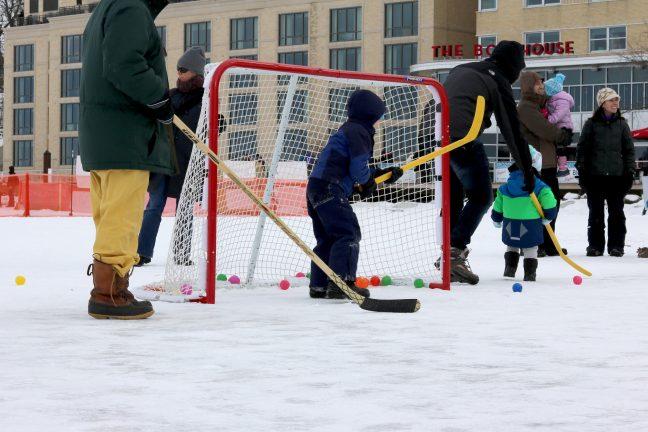Madison lies on an isthmus between Lake Mendota and Lake Monona, so it’s natural that lakes are a central part of the livelihood in the city. While the summer sees many people swimming, kayaking and engaging in a range of outdoor activities on the water, the winter offers its own set of unique lake activities and traditions.
But Madison’s winter activities may be threatened by the effects of climate change.
University of Wisconsin professor emeritus and director of the Center for Limnology John Magnuson conducted research that suggests lakes may start freezing less in the future. Madison’s lakes, along with other lakes in the northern hemisphere, could be completely ice-free by the end of the century.
Magnuson and York University biology professor Sapna Sharma co-authored the research highlighting the growing impact of climate change on lakes and those who use the lakes for recreation.
The Madison lakes may be frozen this year for community use, but Magnuson and Sharma said they may not stay frozen for much longer.
The two researchers are currently working to find measures that predict the changes in ice formation and where those changes will occur.
Wisconsin Union president Mills Botham said he believes an increase in temperature from climate change would be “severely detrimental” to the outdoor activities offered by the university’s two student unions.
Memorial Union mobilizes many of its resources to put on outdoor winter events like the Winter Carnival and offers a variety of winter activities including snowkiting and snowshoeing through organizations like Wisconsin Hoofers and Outdoor UW, Botham said.
Since Madison can become sedentary in the winter, especially compared to the summer, the Union acts as a cultural center and helps foster the city’s community, Botham said.
“Lake Mendota froze later this year than it normally does,” Botham said. “My colleagues and I were nervous that it wouldn’t freeze in time for Winter Carnival, but the late January cold snap saved us.”
Without that “cold snap,” community members and students like William Dougherty may not have been able to engage in some of their favorite winter activities.
Dougherty said he loves to spend summers on the Lakeshore Path and watch the sun set over Lake Mendota. And even as the temperatures drop, Dougherty still enjoys the outdoors. In winter, he likes running on the lakes and has biked across Lake Mendota.
“The lakes affect Madison’s culture in several ways, and I’ve always considered them an essential part of Madison’s image,” Dougherty said. “I think about the lakes when I think of Madison.”
Though Dougherty is fond of Madison’s typical winter activities, he believes people will adapt to the climate that they are in.
“Ultimately, the world is changing and a healthy point of view is to accept that,” Dougherty said.
UW student Hannah Wuerfel disagrees. She said Madison’s current iconic winter activities are critical to its culture and sense of community.
Wuerfel said activities like fishing, skating and walking on the frozen lakes would all be negatively affected by climate change.
“I think Madison’s culture is kind of formed by the lakes,” Wuerfel said. “I think a lot of people are drawn to the beauty that the lakes provide, and a lot of our popular places, like the Union, are all located purposefully on the lake.”


